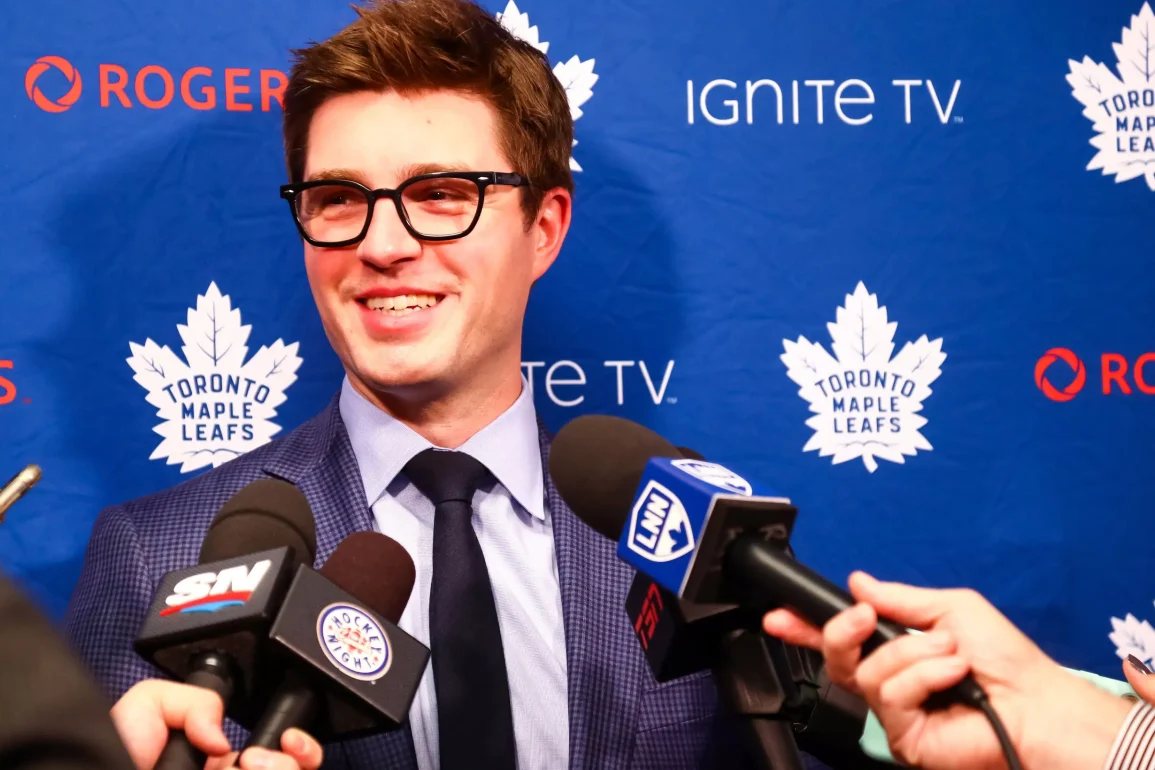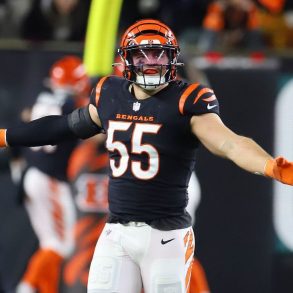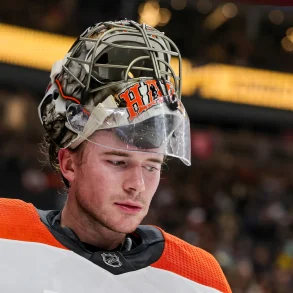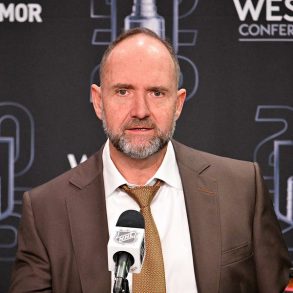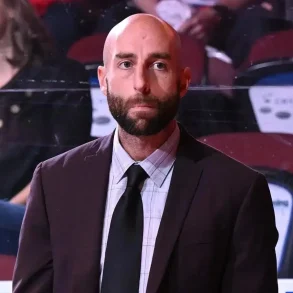Pittsburgh Penguins general manager Kyle Dubas firmly dismissed any claims that the team is intentionally weakening itself to secure high draft picks. Speaking on the Hockey PDOcast, Dubas emphasized that tanking is not part of the Penguins’ mindset.
He acknowledged that while the team is in transition, the goal remains to identify young talent and build a sustainable foundation, not to intentionally lose games in hopes of landing top draft selections.
Dubas explained that the Penguins are executing a deliberate strategy aimed at developing underutilized players. Rather than focusing solely on acquiring high draft picks, the organization seeks to provide opportunities to players who haven’t reached their potential elsewhere.
This includes both newly acquired prospects and existing players in the development system. The goal is to ensure these players become integral to a future core, avoiding declines that would hinder long-term success.
Dubas Prioritizes Smart, Skilled Players and Strategic Signings Over Flashy Free-Agent Headlines
The Penguins’ free-agent signings this offseason didn’t make major headlines, but Dubas insists they serve a strategic purpose. Signings like Parker Wotherspoon, Caleb Jones, Alexander Alexeyev, Justin Brazeau, and Anthony Mantha were made with potential upside in mind.
Mantha, in particular, signed a one-year, incentive-heavy deal and represents a high-reward project. Despite past injuries and inconsistency, Dubas believes Mantha can be a difference-maker if he rebounds.
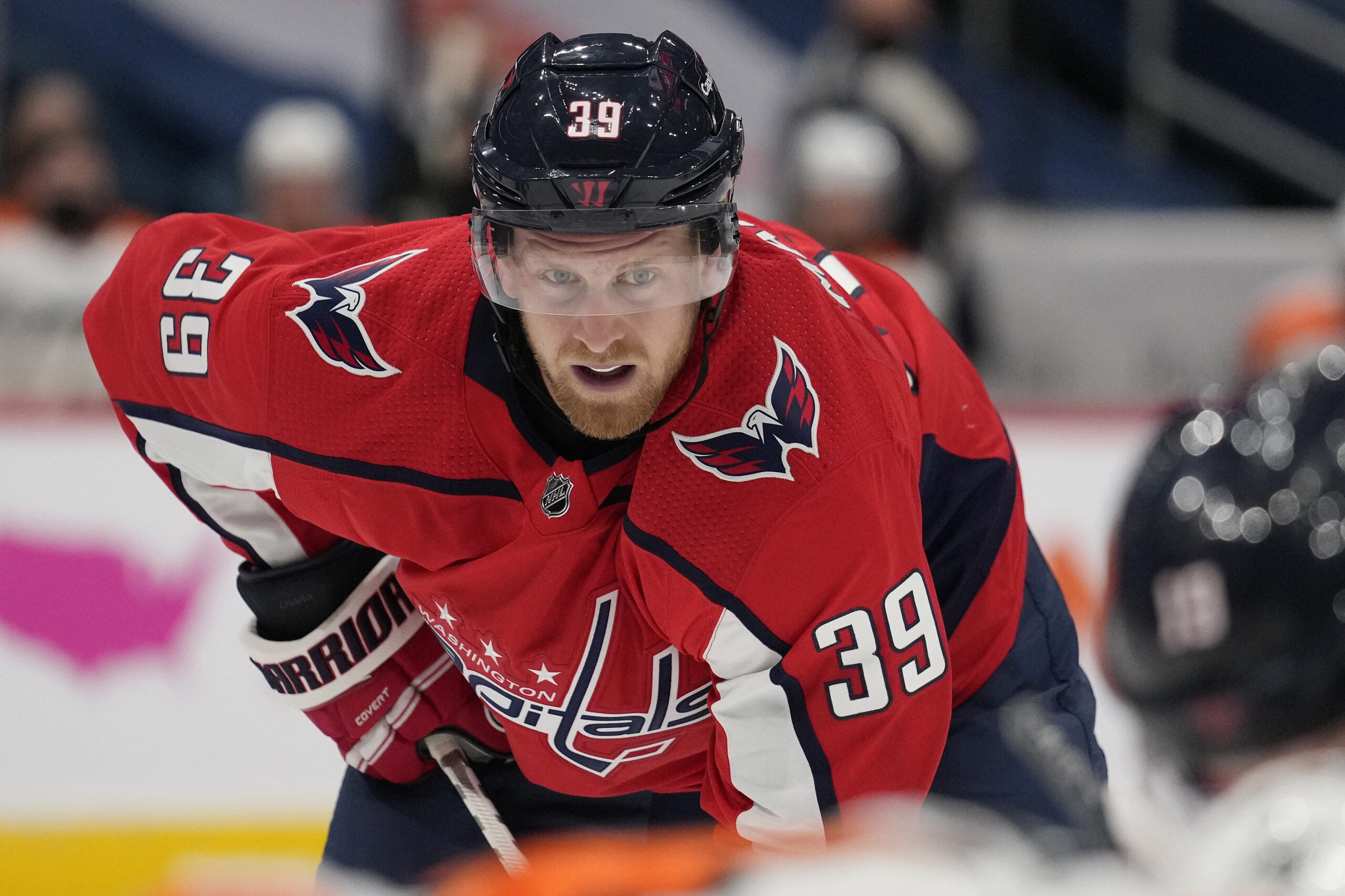
Dubas emphasized that the next couple of seasons will focus on finding out which players, from both the NHL and developmental ranks, can become part of the Penguins’ new core. He listed several prospects, including Will Horcoff, Bill Zonnon, Ben Kindel, and Harrison Brunicke, who are being monitored closely. The strategy isn’t short-term results but building a sustainable contender by fostering internal growth.
One of the more controversial aspects of Dubas’ draft strategy was selecting players with average skating grades, despite the NHL’s shift toward speed. He acknowledged this concern but explained that the Penguins prioritize players who can change pace, create space, and exhibit hockey intelligence over those who simply skate fast without purpose. According to Dubas, skating ability can be developed, but decision-making and vision are harder to teach.
Penguins Embrace Youth Movement, Giving Goalies and Prospects Room to Grow Consistently
The Penguins’ goaltending situation remains fluid, with Tristan Jarry reclaiming the starting job last season, while Joel Blomqvist struggled to seize his chance. Recently, Dubas added 24-year-old Latvian goalie Arturs Silovs from Vancouver, a move that suggests the team is open to giving young goaltenders extended NHL opportunities.
Silovs, known for excelling in high-pressure playoff scenarios, is expected to be given a chance to prove himself at the NHL level this season.
Dubas used the term “runway” to describe how the Penguins are providing younger players like Silovs and Philip Tomasino room to grow. Tomasino, who saw top-six time with Evgeni Malkin last year, is one of several players the team hopes can blossom with extended opportunity. Dubas’ philosophy is clear: the organization is willing to live through ups and downs if it leads to long-term development and eventual consistency.
Toward the end of the interview, Dubas touched on broader NHL topics, including the limited market for taking on bad contracts, the anticipated salary cap spike, and new collective bargaining agreement (CBA) rules.
He highlighted how these shifts are influencing the Penguins’ strategy, particularly the new 75-day waiting period for double-retained salary trades. Dubas remains focused on adjusting to these external changes while steering Pittsburgh back to contention without compromising the future.



